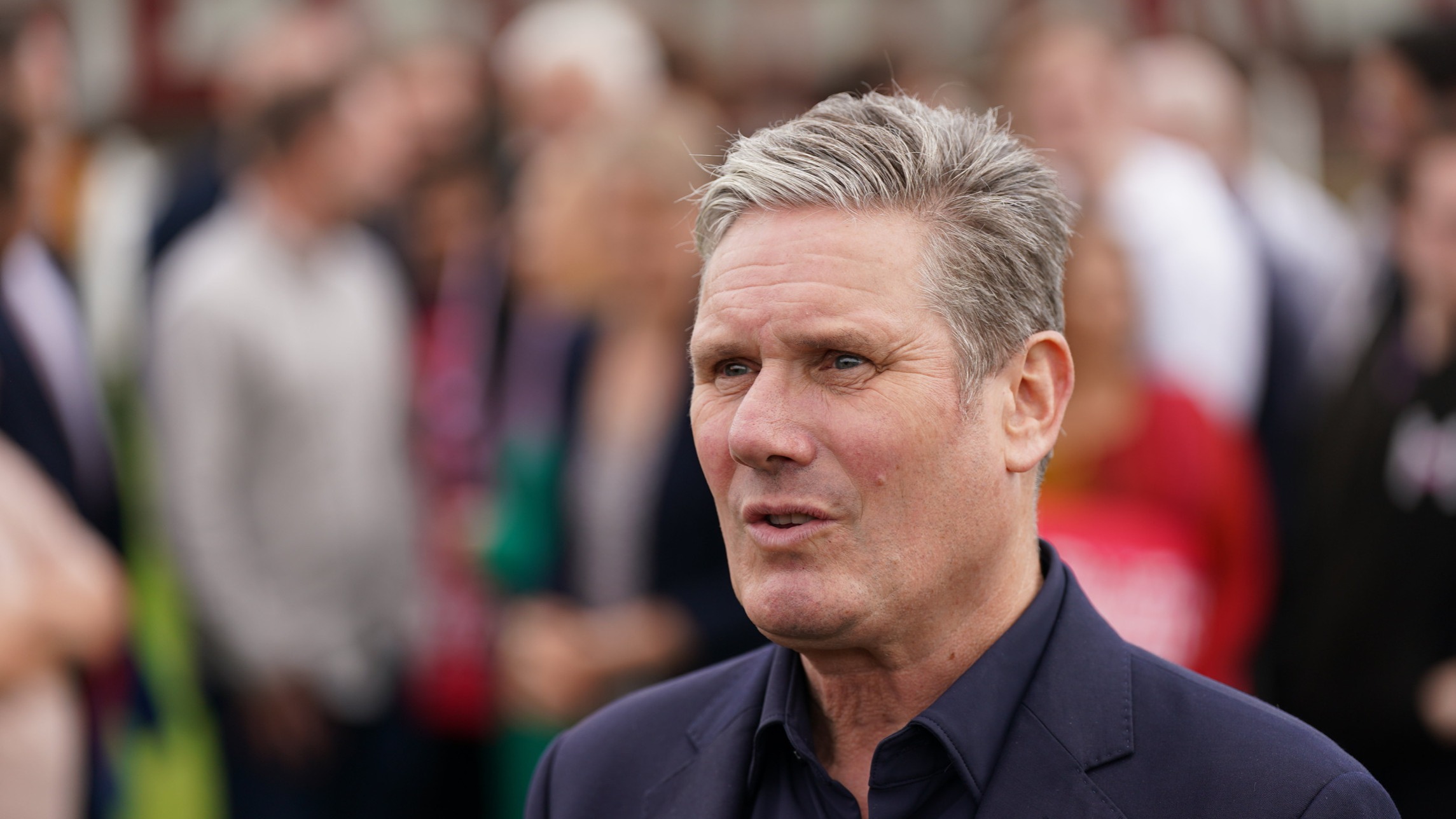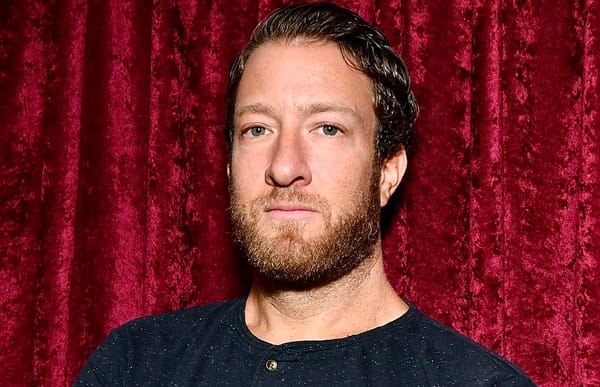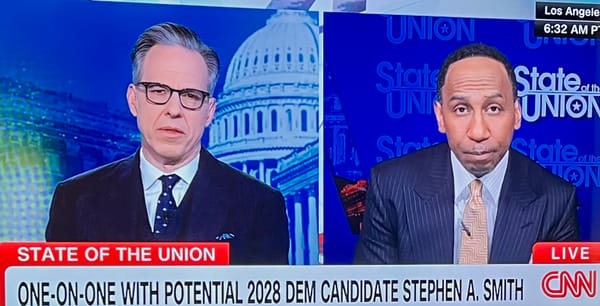What the Brits’ Labour can teach U.S. Democrats
I was happy and relieved by some recent statements by Keir Starmer, who leads Labour, the Left party that hasn’t governed Great Britain since 2010.

Labour leader Keir Starmer embraces patriotism (Photo: Financial Times)
His predecessor was a Labourite given to making anti-Semitic statements, not too unusual in a country where the king expelled the entire Jewish population in 1290. (Thanks Edward I.)
That was a long time ago, but it takes a long time to change some hearts.
And some never change.
In reorienting his party, Starmer said, “We are absolutely committed to patriotism.” Wow! The P-word. Give me a minute while I think about a Democrat who would call himself (or herself) a patriot.
Wait -- I have one: West Virginia’s Joe Manchin. Any others? Maybe Tammy Duckworth, the gravely wounded veteran. All veterans get a pass in my book.
To many on the Left, “patriotism” has become a four-letter word. It kind of amazes me, and it is definitely age sensitive. The younger you are, the more offensive the word. Where did the young acquire that idea?
By definition, “patriotism” means love of, and devotion to, your country. It can also mean pride in your country, and that has taken a hit in recent years.
Only 38% of us have extreme pride in being American, according to a Gallup poll taken last summer.
It was a record low, and Democrats were the cohort with the least pride. Could it be they have lost a sense of national pride? I remember a Democratic president who asked what you can do for your country. Today’s Democratic president wants to erase your student debt.
Back to Starmer: “We are proudly pro-NATO. We are pro-business in the sense of wanting to partner with business, which is a really big and important change for the Labour Party. We have made progress on tackling antisemitism. We’re in a materially different place than we were before.”
Given that Labour has been on the outs so long, it’s good that it has taken stock of itself and found itself wanting. As I’ve said before, sometimes reality forces you to abandon some of your most cherished beliefs when you find they just don’t work.
My WWII generation, just before the Boomers, grew up in the aftermath of a World War that was won — in the main — by America. (With important help from Russia, but without America in the war, Hitler eventually would have subdued Stalin.)
We beat the Nazis, we beat the Japs, [to use a WWII term], we forced democracy down their throats (OK, Germany had a taste of it earlier), and we bankrolled the Marshall Plan that rebuilt Europe, and then we fixed Japan.
We are exceptional for doing that, with charity.*
We turned enemies — Germany and Japan — not just into democratic allies, but into friends.
If that Gallup poll were taken in 1948, you would have found only 38% not extremely proud of the United States. You’ve always got the Debbie Downers, the extremists on both fringes.
In my youth, students in assembly faced our Flag, covered their hearts with their hands, and recited the Pledge of Allegiance. And they meant it. And no one (with some religious exceptions) made mention of their “right” to not pledge allegiance to the Flag. When did that change, and why? And is it good thing?
There was a widespread belief — even in what are today called “marginalized” communities, who were discriminated against, such as Blacks and Jews — that America was a good country, with some serious faults, not a bad country with a streak of good.
Oh, that * I placed a few paragraphs back… I have read The New York Times’ “The 1619 Project” and the earlier “People's History of the United States,” by Howard Zinn, who acknowedged he was an ideologue and not a historian.
Each of them takes the view that the United States is mostly evil. Is that what we should teach our youth? Will that make them better citizens (as voter turnout most years scrapes the bottom)?
The critics say our foundational framework was slavery, and not freedom; and Zinn opines that the Marshall Plan was not to pull a wrecked Europe out of the gutter, but mostly for us to create markets for the manufacturing behemoth we were to become.
It is true Europe did become our market — and they were very happy to buy from the U.S., and that our putting money in Europe’s pocket steered it away from the communism that promised the moon, but rarely delivered.
Yes, we did benefit from our charity, it is a matter of emphasis.
The Revisionists frame our actions as evil and greedy. The rest of us, what had been a majority, take a more balanced view.
So when Starmer talks about patriotism, he means the healthy kind, the kind that stiffened Britons’ back during the German Blitz during WWII.
Remember Prime Minister Winston Churchill’s vow?
“We shall defend our island, whatever the cost may be. We shall fight on the beaches, we shall fight on the landing-grounds, we shall fight in the fields and in the streets, we shall fight in the hills. We shall never surrender!”
I don’t know why Democrats here have surrendered patriotism to the Right.
I don’t know why they have surrendered the Flag.
It is a cliche custom that politicians wear American Flag lapel pins. Remember that Barack Obama resisted it until his advisers convinced him to wear it. See — not wearing it seems to send a message.
I remember Obama doubted American exceptionalism, saying something like Belgians probably think they are exceptional, too. He was just too cool for an exceptionalism that sounded like jingoism, but he had a change of heart, or at least a change of language.
I think it was the 2000 Democratic National Convention that nominated Al Gore that greatly played down the traditional red, white, and blue bunting and flags, as if that were somehow too nationalistic, too old-fashioned, too. . . fascistic?
During the 1996 presidential campaign, I remember Pat Buchanan raised the issue of “culture wars” and was ridiculed by the Left and the MainStream Media. They gave him a big horse laugh.
A thoroughly execrable human being, Buchanan had the last laugh. He was correct — he saw the incipient culture war that the media had scoffed.
Starmer is also pro-NATO, which should not be a surprise, although in this case, the Right thinks NATO has outlived its purpose. Because it was devised to counter the USSR and there is no more USSR, they say. Why do we need NATO? They ignore that the USSR has been distilled to its beating heart, Russia, and the Russian bear is on the move.
Pro-business? Of course, as business generates the jobs that keep free people free from want. To be pro-business is not to be anti-union. There is a balance between the two forces.
Starmer is laying out a course toward the center, which is where most Brits, and most Americans, are.
Gallup reports the largest “party” in America is not a party — it is independents.
In 2023, Gallup says 25% of people identified themselves as Democrat, 25% as Republican, and 49% as Independent.
Why?
Because each party has been pulled toward the fringes by the ideologues, and that is not where most Americans want to be.
It was just reported that former President Obama, having lunch with President Joe Biden, warned him to stop paying homage to extreme progressives in the party and return to the center because former President Donald J. Trump is a threat to be taken seriously.
Yes, the Democrats have nailed down certain popular social issues, like abortion, for instance, but in too many cases are identified with “defund the police,” Sanctuary Cities that thwart federal immigration law, and “restorative justice” that refuses to prosecute criminals. Because of these policies, I call myself a disloyal Democrat. If The Squad represents the party, I am not in that party. Moderation is the path to follow.
Britain’s Labour Party is heading that way. American Democrats ought to go that way, too.



